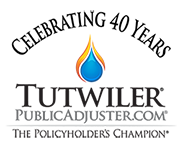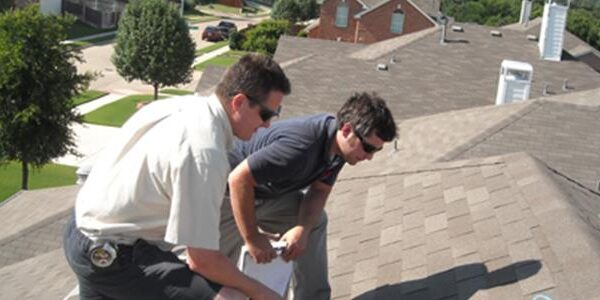As property owners with insurance claims resulting from Hurricane Matthew start to receive settlement offers from their insurance company, our public insurance adjusters continue to field calls and questions from people still struggling through the insurance claims process resulting from Hurricane Matthew. One question that frequently comes up involves how much roof damage there must be for the entire roof to be replaced.
One thing we are seeing is that in their rush to get damages assessed, both insurance company adjusters and many inexperienced contractors are eyeballing roof damage and recommending partial repairs based on simple visual inspection. This is going to cause terrible problems in the future as wind and flying debris can damage the membrane of roofs and set people up for severe water damage in the future. Adjusters simply are not spending enough time assessing policyholder’s damage or taking into affect the increased cost of materials and labor in a CAT situation to make proper repairs. When the adjuster comes calling, please make sure inspectors physically get onto the roof and inspect for damage. While your roof may not look damaged, a closer inspection might reveal that it needs replacing rather than patching.
Florida building code basically says (and we are paraphrasing here) that if you have 25% or more of your roof damaged within a 12 month period, then the entire roof must be replaced. Most residential policies have what is called “Ordinance and Law” coverage to pay for the increased cost of code upgrades. If it applies to your roof and you also have law and ordinance coverage, you should be able to collect for the total replacement of your roof under this coverage as long as you actually do the work. Law and ordinance coverage requires you to incur the cost of the repair and then submit for reimbursement.
Sometimes damaged roof tiles and shingles are not able to be matched where only a section of the roof was damaged. A matching coverage dispute with the insurance company and their adjuster tend to be very controversial as most adjusters will likely insist that they do not have an obligation to replace the undamaged property. This is not always the case and most “replacement cost” provisions within a policy should provide for full replacement of the undamaged property. Anyone dealing with an insurance adjuster, who is arguing they will not pay, may want to hire a professional public adjuster to fight on their behalf.
As always, the professional public insurance adjusters at Tutwiler and Associates are here to help with any property insurance related questions you may have. Please call 800.321.4488 or contact a public adjuster to submit a question to one of our insurance claim experts.

